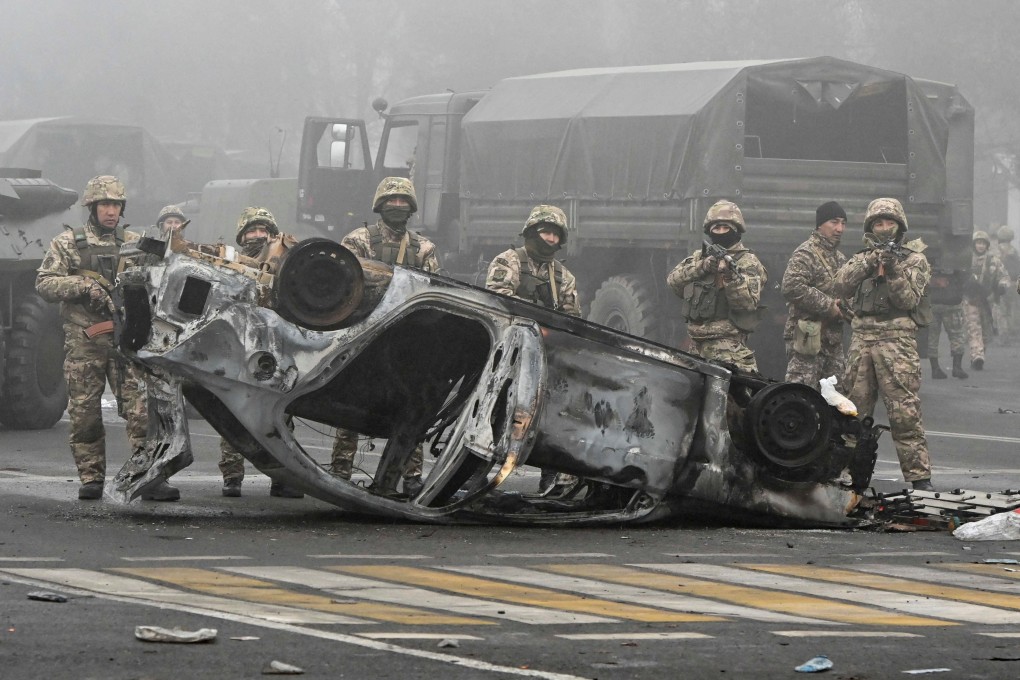Russia sends paratroopers to Kazakhstan as ‘dozens’ killed in unrest
- Russian troops sent as part of a peacekeeping force after Kazakh president asked for help
- Kazakhstan’s largest city Almaty hit by deadly clash between security forces and protesters

Russia has sent paratroopers into Kazakhstan as part of an international peacekeeping force to quell deadly unrest in the central Asian country.
Earlier, security forces in Kazakhstan killed dozens of protesters trying to storm government buildings overnight, police said Thursday, as the unrest sparked by rising fuel prices boiled over into the biggest protests since independence in 1991.
“Last night, extremist forces tried to assault administrative buildings, the Almaty city police department, as well as local police commissariats. Dozens of assailants were eliminated,” police spokesman Saltanat Azirbek was quoted as saying by the Interfax-Kazakhstan, TASS and Ria Novosti news agencies.
Kazakh President Kassym-Jomart Tokayev had appealed for the intervention of the Collective Security Treaty Organization (CSTO), a military alliance of Russia, Armenia, Belarus, Kazakhstan, Kyrgyzstan, and Tajikistan, blaming foreign-trained “terrorist” gangs for the violent protests.
Later, in a statement posted by Russian foreign ministry spokeswoman Maria Zakharova, the CSTO secretariat said: “Peacekeeping forces of the Collective Security Treaty Organisation were sent to the Republic of Kazakhstan for a limited time to stabilise and normalise the situation”.
It said the deployment included units of the armed forces of Russia, Belarus, Armenia, Tajikistan and Kyrgyzstan, the five other members with Kazakhstan of the Moscow-dominated CSTO.
The statement did not specify how many troops were being sent but said the Russian contingent included members of the country’s Airborne Forces.

The troops’ main tasks “will be the protection of important state and military facilities and assistance to the forces of law and order … in stabilising the situation,” the statement said.
